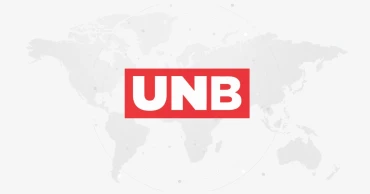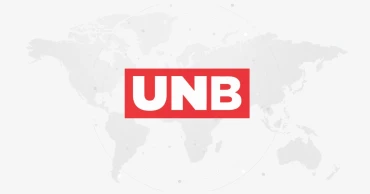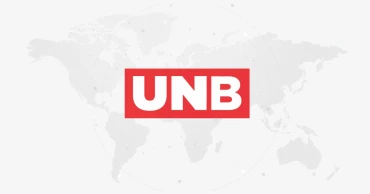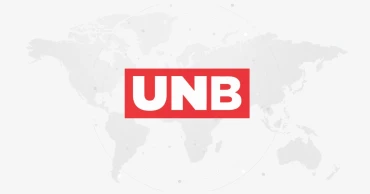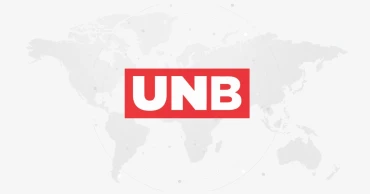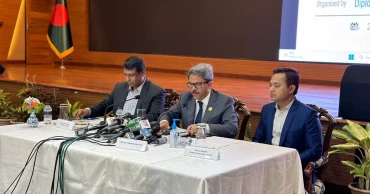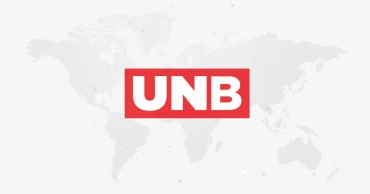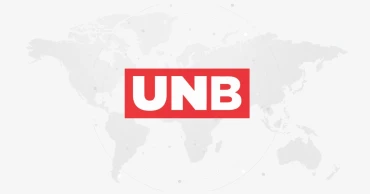Bangladesh's economy
Economy not as bad as feared, but challenges persist: Finance Adviser
Though the country faces economic challenges, the situation is not as critical as suggested by the International Monetary Fund (IMF), said Finance Adviser Dr Salehuddin Ahmed on Thursday.
“The IMF has expressed various apprehensions, but the economy is not as bleak as projected. However, there are undeniable challenges we must address,” he told reporters at the Secretariat.
His remarks came as a 10-member IMF delegation is in Dhaka to review Bangladesh’s economic progress under the ongoing loan programme.
Govt trying to keep prices of essentials tolerable till Ramadan: Finance Adviser
The review is part of the preparation for the fourth tranche of funds.
During discussions with government officials, the IMF noted that the economy is under pressure due to a range of factors, including political unrest, floods and contractionary policies.
The IMF has predicted that Bangladesh’s growth rate could drop to 3.8% by the end of the year. It further highlighted slow economic activity and persistent inflationary pressures.
Capital outflows from banks have added strain to foreign exchange reserves, the delegation said.
The IMF delegation head, Chris Papageorgiou, offered a brighter outlook for the next fiscal year.
Politics won’t affect trade ties with India: Finance Adviser
He projected GDP growth to increase to 6.7%, with inflation falling to 5-6%, and emphasised the need for structural reforms, including tax reforms, strengthening the banking sector with a clear roadmap, and ensuring the central bank's independence.
About the Beximco Group ‘bailout’, Dr Ahmed justified the move, citing humanitarian grounds. “The funds were necessary to ensure workers received their wages. Wrongdoers must be punished, but workers should not suffer.”
Looking ahead, Dr Ahmed assured that the 2025-26 budget would focus on protecting the poor from tax burdens.
He criticised certain business practices, stating, “Entrepreneurs are constantly seeking loopholes. Those with Tk 500 million in business refuse to pay Tk 40 million in taxes. This must change.”
Meanwhile, the IMF confirmed that Bangladesh would receive $645 million from the fourth tranche of its loan programme by the end of February, with an equal amount due in the fifth tranche.
Before disbursing the fifth tranche, another review is scheduled for March or April.
1 year ago
Low revenue collection hampers debt management, Finance Ministry doc says
The Finance Ministry has highlighted low revenue collection as a major obstacle to effective debt management, restricting the government's ability to invest in infrastructure and development projects.
According to a document from the ministry, the lower revenue-to-GDP ratio adversely impacts debt sustainability. "This issue is further exacerbated by the LDC graduation deadline in 2026, which will affect the country's access to concessional financing from international sources," the document states.
The finance ministry's document, titled ‘Medium Term Macroeconomic Policy Statement (2023-24 to 2025-26)’, also identifies the high-interest rate environment both domestically and internationally as another significant challenge. This situation is increasing borrowing costs and straining public finances.
Despite zero investment, govt earning Tk14 crore revenue from Nagad: Palak
The rising need for government funding to support critical infrastructure, social safety nets, and other development initiatives compounds the problem. Additionally, the presence of segmented debt offices within various agencies has created coordination challenges in debt management, potentially affecting the country's fiscal sustainability.
Recommendations for Improvement
To address these challenges, the Finance Ministry recommends a comprehensive and integrated approach to debt management, improved revenue collection, and exploring alternative financing mechanisms to reduce reliance on debt.
It is crucial to address these issues promptly to ensure that the country's public debt remains sustainable, the document asserts.
Steps Toward Financial Efficiency
The Finance Division has already undertaken measures to enhance the efficiency and transparency of the financial system. One key initiative is the introduction of secondary market transactions of government securities, facilitated by a memorandum of understanding (MoU) signed among Bangladesh Bank, the Bangladesh Securities and Exchange Commission (BSEC), the Dhaka Stock Exchange (DSE), the Central Depository Bangladesh Limited (CDBL), and the Central Counterparty Bangladesh Limited (CCBL).
Despite zero investment, govt earning Tk14 crore revenue from Nagad: Palak
This move aims to increase the scope and depth of the secondary bond market, allowing both institutional and household investors to participate in government securities transactions. It is expected to help finance the government’s deficit more efficiently and contribute to capital market development and overall economic growth.
Additional Reforms
The automation of the National Savings Certificate (NSC) issuance process represents another critical reform aimed at increasing efficiency and reducing paperwork. This measure supports the implementation of policy measures such as slab-based interest rates and individual investment ceilings, aligning with the government’s financing strategy and reducing investment in NSC.
Furthermore, the publication of the Debt Bulletin ensures transparency in debt data, benefiting various stakeholders including other ministries, research organizations, the business community, the international community, and the general public.
34% of Bangladesh's revenue spent on debt repayment: CPD
Moderate Debt Levels, Significant Challenges
Despite Bangladesh maintaining a moderate level of public debt and a low risk of external debt distress due to strong growth and prudent macroeconomic management, the document stresses that significant challenges remain. Addressing these challenges is essential to maintaining sustainable public debt and supporting the country's development objectives.
1 year ago
Urgent monetary reform, single exchange rate regime critical to improve foreign exchange reserves and ease inflation: World Bank
Bangladesh's economy made a strong turnaround from the COVID-19 pandemic, but the post-pandemic recovery continues to be disrupted by high inflation, a persistent balance of payments deficit, financial sector vulnerabilities, and global economic uncertainty, says the World Bank in its twice-yearly update.
Released today, the latest Bangladesh Development Update says that urgent monetary reform and a single exchange rate regime will be critical to improve foreign exchange reserves and ease inflation. Greater exchange rate flexibility would help restore balance between demand and supply in the foreign exchange market.
“Bangladesh’s strong macroeconomic fundamentals have helped the country overcome many past challenges,” said Abdoulaye Seck, World Bank Country Director for Bangladesh and Bhutan.
“Faster and bolder fiscal, financial sector, and monetary reforms can help Bangladesh to maintain macroeconomic stability and reaccelerate growth,” he added.
Structural reforms will be key to diversify the economy and build resilience over the medium and long term, including measures to raise government revenues to support investments in infrastructure and human capital, said the global lending agency.
Persistent inflation eroded consumer purchasing power, while investment was dampened by tight liquidity conditions, rising interest rates, import restrictions, and increased input costs stemming from upward revisions in administered energy prices.
Foreign Minister for concluding PTA with Indonesia
Private sector credit growth slowed further in FY24, reflecting a broader slowdown in investment.
The non-performing loan (NPL) ratio in the banking sector remains high and understates banking sector stress due to lax definitions and reporting standards, forbearance measures, and weak regulatory enforcement.
The balance of payments deficit moderated over the first half of FY24 driven by a surplus in the current account.
The report’s companion piece, the latest South Asia Development Update — Jobs for Resilience, also released today, says that South Asia is expected to remain the fastest-growing region in the world for the next two years, with growth projected to be 6.0% in 2024 and 6.1% in 2025.
Growth in South Asia is expected to be driven mainly by robust growth in India and Bangladesh, and recoveries in Pakistan and Sri Lanka.
But this strong outlook is deceptive, says the report. For most countries, growth is still below pre-pandemic levels and is reliant on public spending.
Persistent structural challenges threaten to undermine sustained growth, hindering the region’s ability to create jobs and respond to climate shocks.
Private investment growth has slowed sharply in all South Asian countries and the region is not creating enough jobs to keep pace with its rapidly increasing working-age population.
“South Asia’s growth prospects remain bright in the short run, but fragile fiscal positions and increasing climate shocks are dark clouds on the horizon,” said Martin Raiser, World Bank Vice President for South Asia.
“To make growth more resilient, countries need to adopt policies to boost private investment and strengthen employment growth.”
Saima Wazed, Princess Dechen Yangzom Wangchuck launch Bhutanese version of Bangabandhu’s ‘Unfinished Memoirs’
South Asia’s working-age population growth has exceeded than that in other developing country regions.
The share of the employed working-age population has been declining since 2000 and is low.
In 2023, the employment ratio for South Asia was 59%, compared to 70% in other emerging markets and developing economy regions.
It is the only region where the share of working-age men who are employed fell over the past two decades, and the region with the lowest share of working-age women who are employed.
“South Asia is failing right now to fully capitalize on its demographic dividend. This is a missed opportunity,” said Franziska Ohnsorge, World Bank Chief Economist for South Asia.
“If the region employed as large a share of the working-age population as other emerging markets and developing economies, its output could be 16% higher.”
Read more: Money launderers destroying country's economy: Salma Islam
1 year ago
Sundarbans Day: World's largest mangrove forest draws growing number of tourists
The Sundarbans, the world's largest mangrove forest, has become a hub of activity, drawing nature enthusiasts from around the globe with its stunning landscapes and diverse wildlife. This natural wonder is not only a key tourist attraction but also plays a vital role in promoting environmental conservation and boosting local revenue.
During the prime visiting months from October to February, the Sundarbans offers visitors cool river waters and pleasant weather, making it an ideal destination for exploring its unique ecosystem. Recent statistics reveal a significant uptick in tourism, with 216,143 visitors, including 2,143 international guests, in the fiscal year 2022-2023, generating Tk 3.94 crore in revenue for the government. This marks a notable increase from previous years, highlighting the forest's growing appeal and importance to Bangladesh's economy.
According to data collected from the local forest office, the number of tourists was 1,89,570 in the fiscal year 2018-2019 and of them, 2,261 came from other countries. The government earned Tk 1.51 crore during this period.
Read: Sundarbans Day in southwestern region on Feb 14; a clarion call to love, save the forest
In the fiscal year, 2019-2020, the number of tourists was 1,72,979. Of them 2,317 came from overseas. A total of Tk 1.87 crore was collected as revenue during this period.
2 years ago
Awami League’s Manifesto: Mega Projects for Accelerating Economic Momentum
Awami League has pledged to undertake new projects to accelerate the pace of the country's economy.
The manifesto with the slogan ““Smart Bangladesh: Visible Development, Increased Employment” was announced by Awami League President and Prime Minister Sheikh Hasina today at the Pan Pacific Hotel Sonargaon in Dhaka ahead of the 12th National Parliamentary Election slated for January 7, 2024.
The manifesto of Awami League states that mega projects are crucial for achieving high growth rates. The biggest obstacles in the path of the country's development were the lack of necessary infrastructure in various economic sectors, including roads, electricity and energy, and ports. With this goal in mind, under the visionary leadership of Prime Minister Sheikh Hasina, the Awami League government has undertaken and implemented several major projects (mega projects) in three terms. It is hoped that these projects, including the Padma Bridge – a symbol of national pride and glory – will inject the expected momentum into development.
The manifesto mentions that during the tenure of the Awami League government, many significant projects have been initiated. On June 25, 2022, Prime Minister Sheikh Hasina inaugurated the Padma Multipurpose Bridge, the country's largest bridge, funded by own resources. The Padma Bridge has created a safe, reliable, sustainable, and integrated system for unhindered communication across the country. This bridge will be part of the Asian Highway, opening new horizons for communication among South Asian countries.
It is stated that the inauguration of the railway linked to the Padma Multipurpose Bridge on October 10, 2023, has brought many districts of the southern region under rail connectivity with Dhaka.
PM Hasina unveils AL election manifesto promising dev, peace, prosperity
The manifesto also says that the Dhaka Metro Rail is a step towards building a smart Bangladesh. It will not only free the citizens of Dhaka from unbearable traffic congestion but also reduce air and noise pollution in the capital. The ease of the transportation system will increase economic dynamism, and the metro rail will save working hours for people.
It is mentioned that the construction of a 3.32 km tunnel under the Karnaphuli River in Chattogram, connecting Patenga with Anwara, has transformed the Port City into a “One Way, Two Town” model.
The manifesto notes that the inauguration of the Third Terminal of Hazrat Shahjalal International Airport in Dhaka on October 7, 2023, has opened a new horizon in air communication.
On September 2, 2023, with the inauguration of the Kawla-Farmgate section of the Dhaka Elevated Expressway, Bangladesh entered the world of elevated expressways.
On November 11, 2023, the channel of the Matarbari deep-sea port and the foundation stone of the first terminal were inaugurated. Once operational, this port will allow both container and cargo ships to dock simultaneously.
Voter turnout will be satisfactory despite intimidation: Quader
The manifesto states that on November 11, 2023, the much-awaited 102 km railway line from Dohazari in Chattogram to Cox's Bazar was inaugurated. This railway line will connect Bangladesh with the Trans-Asian Railway corridor and transform Cox's Bazar into a smart city.
It was mentioned that on October 10, 2021, and October 18, 2022, the first and second units' nuclear reactor pressure vessels at the Rooppur Nuclear Power Plant were inaugurated, earning Bangladesh the honor of becoming the 33rd member of the nuclear club.
The manifesto notes that on September 6, 2022, Bangladesh Prime Minister Sheikh Hasina and Indian Prime Minister Narendra Modi jointly inaugurated the Rampal coal-based power plant, which has a production capacity of 1,320 megawatts.
In August 2018, Bangladesh began supplying gas to the national grid from the country's first LNG terminal, followed by the commencement of the second LNG terminal in April 2019. Each terminal at Maheshkhali's LNG floating storage has a daily regasification capacity of 50 crore cubic feet.
The manifesto states that Payra Seaport, the country's third port, has been established in Patuakhali. Due to infrastructural development, the first container ship anchored at the port on August 13, 2016.
The Awami League's manifesto promises that, considering financial management, some expensive projects have been suspended, which will be reconsidered and implemented as appropriate. The consideration and adoption of economically feasible new projects will continue.
Food for All: AL Manifesto Emphasizes Agricultural Development for a Hunger-Free Bangladesh
2 years ago
Food for All: AL Manifesto Emphasizes Agricultural Development for a Hunger-Free Bangladesh
"Food for All" is the core goal and commitment of the Awami League. The manifesto pledges to build a hunger-free Bangladesh. On Wednesday (December 27), the Awami League announced this manifesto for the 12th national parliamentary election.
Agriculture is a primary driving force of Bangladesh's economy and livelihoods. Agriculture plays a crucial role not only in fulfilling the food and nutritional needs of the population but also in providing employment in rural areas, supplying raw materials to industries, and increasing export earnings. Following independence, Father of the Nation Bangabandhu Sheikh Mujibur Rahman, initiated an agricultural revolution by taking ground-breaking steps to enhance production and ensure food security, giving utmost importance to the development of agriculture and farmers. Currently, under the leadership of Bangabandhu's daughter, Sheikh Hasina, the Awami League government also prioritizes agriculture in state governance. With the commitment of "Food for All," the party emphasizes agricultural development in its manifesto for the 12th national parliamentary election.
PM Hasina unveils AL election manifesto promising dev, peace, prosperity
In the fiscal year 2022-23, rice production surpassed all previous records. Currently, Bangladesh ranks third globally in the production of rice, vegetables, and onions. Additionally, it holds the second position in jute production, fourth in tea, and seventh in potato production. Significant progress has been made in cultivating both domestic and foreign fruits. Farmers are encouraged to cultivate profitable but unconventional crops like coffee, cashew nuts, black pepper, malta (a type of citrus), and dragon fruit. The per capita fruit consumption rate, which was 55 grams in 2006, increased to 85 grams in 2023. In the last 15 years, 699 new crop varieties resilient to adverse environments and 708 technologies have been developed. The mechanization of agriculture is underway to modernize it. From 2010 to 2023, nearly 133,000 agricultural machineries, including combine harvesters, reapers, seeders, and power tillers, have been distributed to farmers at subsidized prices. A 3,000 crore taka agricultural mechanization project is ongoing. Overall, the country's agricultural system is transitioning from subsistence farming to commercial agriculture.
AL to announce election manifesto Wednesday
To maintain this trend, the Awami League, led by Prime Minister Sheikh Hasina, pledges to follow sustainable development strategies based on planned initiatives. The strategy aims to meet the growing population's nutritional needs, ensure the supply and accessibility of nutritious food for all, develop commercial agriculture, expand agriculture-dependent industries, improve rural infrastructure, increase and diversify exports of agricultural and non-agricultural products, and enhance the quality of life in rural communities through poverty alleviation. The annual budget allocation will be increased, and private investment in the rural sector will be encouraged.
Awami League’s Commitment
"Food for All" remains the Awami League's primary goal and commitment. The trend of following sustainable development strategies, based on a contextualized plan for the development of agriculture, farmers, and the rural economy, will continue. The strategy includes ensuring nutrition for the growing population, supplying and accessing nutritious food for everyone, developing commercial agriculture, expanding agriculture-dependent industries, improving rural infrastructure, increasing and diversifying exports of agricultural and non-agricultural products, and enhancing the living standards of rural communities through poverty alleviation. The annual budget allocation will be increased, and private investment in the rural sector will be encouraged.
The daughter of Bangabandhu pledges to expand the initiatives already taken to increase agricultural production. The provision of agricultural loans at 4% concessional interest will continue; the central bank will refinance commercial banks at a 0.5% rate, encouraging them to distribute more agricultural loans. The Awami League will continue to provide assistance and subsidies for agricultural production and investment in agricultural inputs. Easy access to and availability of agricultural machinery will be ensured to alleviate labor shortages in agriculture and increase productivity. Subsidies on agricultural machinery will continue.
The Awami League government has already implemented a policy to bring all land under cultivation to further increase agricultural production. Sheikh Hasina's commitment is that no land will remain uncultivated. Emphasis will be placed on developing an integrated agricultural system.
Furthermore, to build a smart, agriculture-dependent Bangladesh, strategies will be adopted for commercial agriculture, biotechnology, genetic engineering, robotics, artificial intelligence, and nano-technologies, as well as for developing the rural non-agricultural sector and facing globalization challenges. The focus on modernizing agriculture, innovating technology, and increasing opportunities and facilities for agricultural research will continue. Environmental protection will also be seriously considered in the use of various products in agriculture.
Read more: Govt prepared to ensure food security into the future: Agriculture Minister
Not only agriculture, but also the fisheries and livestock sectors are immensely important for ensuring food security, meeting nutritional needs, creating employment, alleviating poverty, expanding export trade, and overall socio-economic development in Bangladesh. To meet the animal protein demand of the growing population, create entrepreneurs and employment, and keep the rural economy active, Sheikh Hasina's government is also giving equal importance to the fisheries and livestock sectors. The Awami League's commitments in this continuity are:
1. To increase the productivity of livestock by one and a half times by 2028.
2. To establish commercial dairy and poultry farms, increase self-employment, and alleviate poverty by providing loans on easy terms, necessary subsidies, technical advice, and policy support.
3. To increase the domestic production of quality animal feed ingredients, expand processing technology, and ensure reasonable prices.
4. To diversify, process, and expand export-oriented industries of animal products.
5. To expand farm mechanization and automated production systems in preparation for the Fourth Industrial Revolution.
6. To increase fish production from 4.915 million metric tons to 5.840 million metric tons and to raise the per capita fish consumption from 67.8 grams/day to 75 grams/day by ensuring sustainable fish production and achieving food security through maximum utilization of resources.
7. To strengthen sustainable management of marine fisheries resources and ensure responsible fishing for the development of the blue economy.
8. To adopt projects/programs based on delta hotspots for coping with the adverse effects of climate change, improving the quality of life of local communities, adaptation, and capacity building.
9. To reduce fish waste by 10% and create employment for about 600,000 people in the next five years by ensuring sustainable use of fish resources through value chain development and diversifying value-added fish and fishery products.
10. To encourage the private sector to increase fish and fishery product exports and expand new markets abroad by organizing Fish Expos and establishing exclusive economic zones for fishery product processing, aiming to increase export earnings from 4,790 crore to 15,000 crore taka.
11. To expand ongoing programs for increasing livestock production and to enhance opportunities and facilities for processing, marketing, and value addition of these products.
12. To continue fish farming in ponds and, where possible, in rice fields by providing quality fish fry, food, and disease treatment.
13. To provide easy access to capital, electricity connections, and other facilities for farmers.
Read more: Food security remains protected amid int’l crisis: PM Hasina tells Parliament
2 years ago
IMF lowers growth forecast for current fiscal to 6 percent
After the World Bank did it last week, the International Monetary Fund (IMF) today (October 11, 2023) revised downward its growth forecast for the Bangladesh economy in the 2023-24 fiscal.
The IMF lowered its projection to 6.0 percent from 6.5 percent. The World Bank last week projected its new growth figure for the Bangladesh economy in 2023-24 as 5.6 percent, down from its previous projection of 6.2 percent.
IMF outlook worsens for a 'limping' world economy. Mideast war poses new uncertainty
The IMF also said Bangladesh's economy grew 6 percent in the 2022-23 fiscal, in its flagship World Economic Outlook publication, released globally on Tuesday.
The global lender revised upward its projections for Bangladesh's growth to 6 percent for the fiscal year 2022-23 from its previous forecast of 5.5 percent.
IMF satisfied with BBS for efforts to meet conditions: Official
2 years ago
No pressure, no fear in Awami League’s dictionary: Shahriar Alam
Bangladesh's State Minister for Foreign Affairs Md Shahriar Alam today (June 25, 2023) said, the narrative of Bangladesh being a “small country” has changed globally with its growing economy, wider engagement with partners, and political stability.
“Bangladesh is seen as an example of good practice in multilateral forums,” he said while speaking at DCAB Talk.
Diplomatic Correspondents Association, Bangladesh (DCAB) hosted its flagship event at the Foreign Service Academy.
Also read: UN officials praise Bangladeshi peacekeepers during meeting with PM Hasina
DCAB President Rezaul Karim Lotus moderated the discussion. DCAB General Secretary Emrul Kayesh also spoke on the occasion.
The state minister said that Bangladesh’s importance has increased significantly and its level of cooperation internationally has also been enhanced.
He said Bangladesh has achieved continuity and stability, and this continuity will prevail.
Responding to a question, Alam said, the government is “not feeling any pressure” ahead of the national election as the Election Commission will proceed as per the constitution.
Also read: Discrimination, sexual abuse have no place in Peacekeeping Missions, Dhaka says
Referring to events over 10 years ago, the state minister said that there is no word like “fear” in the dictionary of Awami League and Prime Minister Sheikh Hasina.
He also mentioned a diplomatic call for a fresh election before monsoon in the past, saying, “That sounds too ambitious.”
The state minister said the government will not accept or welcome any interference in Bangladesh’s internal affairs but will welcome election observers.
He said there has been conspiracy against Bangladesh in the past.
Also read: Climate change: Foreign Minister highlights adaptation efforts
Alam said Prime Minister Sheikh Hasina will not take any step that goes against the interest of the people and the country.
Responding to a question, Alam said that there has been significant progress that leads to the need for withdrawing US sanctions on the elite force, RAB. "We will realise the demand (withdrawal of sanctions)."
In his remarks, DCAB President Rezaul Karim said they understand Bangladesh has emerged as an important country in geopolitics with its growing economy. He said Bangladesh’s extraordinary development, democratic stability, and geopolitical significance are undeniably matters of discussion at home and abroad.
Read more: UN officials praise Bangladeshi peacekeepers during meeting with PM Hasina
2 years ago
Budget sets 7.5 percent annual economic growth, inflation at 6 percent
The proposed budget of Bangladesh in the fiscal year 2023-24 has set an estimated Gross Domestic Product (GPD) worth of 50.06 lakh crore with a 7.5 percent annual growth.
The inflation target was set to 6 percent which is now 9.28 percent in the proposed budget.
The 7.5 percent growth projection could be deemed as ambitious given the uncertainties in the global economy and various other challenges at home.
Finance Minister AHM Mustafa Kamal explained his position on why he is expecting higher growth this time despite the economic pressures.
Read more: Finance Minister unveils Tk 761,785 crore national budget
“We expect to return to a higher growth trajectory and achieve a 7.5 percent GDP growth, by way of investing in the productive sectors and stimulating productivity and domestic demand,” he said.
Kamal focused on investment in the 100 special economic zones and completing ongoing mega-projects to achieve the GDP target.
In FY19, Bangladesh achieved a record 8.15 percent GDP growth. Then came the pandemic. The finance minister set a growth target of 8.2 percent in FY20, but the actual growth achieved was 3.45 percent, the lowest in several decades.
The growth rate increased to 6.94 percent in FY21 after recovering from pandemic effects. The GDP growth further increased to 7.1 percent in FY22.
Read more: Budget FY23-24: Focus should be on tackling macroeconomic challenges, says Dr Atiur Rahman
2 years ago
Govt’s efforts on to keep economy vibrant despite global recession: PM
Prime Minister Sheikh Hasina on Wednesday (May 31, 2023) said that the government is making every effort to keep Bangladesh's economy alive despite the global economic recession caused by the Covid-19 pandemic and the Ukraine-Russia war.
The prime minister said this while responding to a tabled question of Awami League MP elected from Chattogram MA Latif for PM’s question-answer session.
She said the government has been able to quickly bring the country's economy to the pre-Covid high growth trend dealing with the recession, inflation and instability in the global economy caused by the pandemic and the war.
Read more: President Erdogan and PM Hasina vow to take Dhaka-Ankara ties to new height
“Amid the crisis over Covid, our growth in the financial year 2019-20 was 3.45 percent which was one of the highest in the world for that period,” she claimed.
She said that due to the various steps taken by the government to boost the economy, the GDP growth in the financial year 2020-21 increased by 6.94 percent. “It further increased to 7.10 percent in FY 2021-22.”
Hasina also highlighted various measures taken by the government to keep the economy of the government alive.
Read more: PM calls for more Swedish investment as H&M boss calls on her
These included government expenditure rationalisation, social protection, subsidies in electricity, energy and agriculture sectors, export incentives, rise in remittance inflow, monetary policy etc, she said.
In response to the question of Jatiya Party MP elected from Dhaka Syed Abu Hossain, the prime minister highlighted the various steps taken by the government to control the prices of daily commodities and said as a result of the government's activities, it has been possible to control the prices of essentials and the poor people are benefiting from it.
In response to the question of Jatiya Party MP elected from Pirojpur Rustam Ali Farazi, the she said that it will be possible to start rail traffic on the Dhaka-Mawa-Bhanga section of the Padma Bridge Rail Link Project by September 2023 and the Jessore section from June 2024.
Read more: Work together to regain lost glory in science and technology: PM Hasina to Muslim community
In response to reserved seat MP Kha Mamata Lovely's question, the prime minister said that 555,134 families have been rehabilitated through the Ashrayan project.
2 years ago


